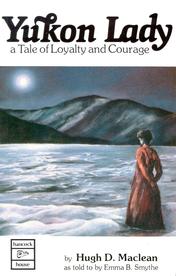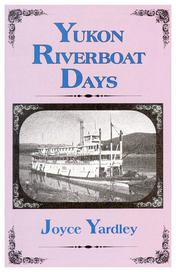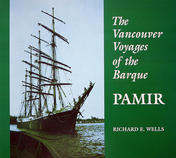History
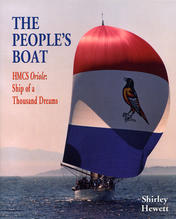
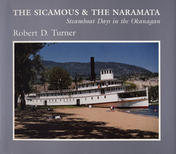

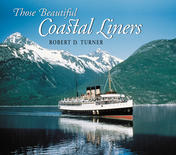

Discovery
For a nation with great maritime pretensions, Britain in the late 1700s built some awful ships. Stubby in the bow and stern, they looked extruded instead of crafted. One contemporary accused shipyards of "building ships by the mile and cutting them off to length as required." They had the sailing qualities of a scow, but not the stability. Many capsized. The most famous example was the Royal George, which heeled and sank while lying off Spithead in 1782, with a loss of nine hundred lives.
By the time the Discovery was built, in 1789, the worst features of British naval architecture had been eradicated. if the hulls were still not swift, they were at least seaworthy. Their greatest virtue was strength: the Discovery's melon-shaped merchant hull was built from heavy oak timbers, assembled around a massive keel of elm. The Royal Navy added ten 4-pound cannons, installed accommodation for one hundred and called it a sloop-of-war. it was, in effect, an armed bus. Though stout, it was slow and cumbersome, traits that had direct bearing on the nature of Vancouver's work in the confined waters of the Northwest Coast.
Beaver
The rotting, stinking shell of the Discovery was still a convict hulk when, in August 1832, George Simpson, the Hudson's Bay Company's governor-in-chief for North America, made an unusual request of his bosses in London. He wanted a steamboat. This odd invention, whose awkward side levers and filthy stacks drew snorts of derision from true sailors,had only been in commercial service two decades. Yet Simpson was sure if such a vessel was stationed at the company post on the Columbia River it would soon reduce transportation costs and eradicate competition.
Princess Maquinna
The Canadian Pacific Railway steamer Princess Maquinna wascalled a lot of names in its day: Old Faithful, the Ugly Duckling, the Ugly Princess and, by a one-eyed Irish handlogger, Slatternly Streel. No one ever said it was pretty. The great blackened sides resembled flabby flanks, and the single skinny funnel looked like a ridiculously undersized stovepipe hat. Even the bow, normally the most rakish part of a vessel, was unappealingly perpendicular, as though the ship knew of the uncharted
reefs that littered its routes along the west coast of Vancouver island and was wincing in preparation for a collision.
Malahat
Carrie Nation. Gordon Gibson. Two people could not differ more and still be classified as Homo sapiens. Nation marched the US into Prohibition. Gibson swilled a bottle of scotch a day. Nation attacked city saloons with the cry, "Smash, for the love of the Lord, smash!" Gibson logged the west coast of Vancouver island and called himself "Bull of the Woods." Nation was small and nasal. Gibson was big and bass-voiced. Nation was prim, Gibson unbuttoned. Yet through the strange architecture of history, both figured in the odd, accidental life of a wooden-hulled schooner, the Malahat.
Built in Victoria to carry lumber in World War I, the Malahat was saved from oblivion twice: first by American Prohibition, which created a need for ships to lug bootleg liquor to California, and second by Gordon Gibson, the sledgehammer visionary who transformed the ship into the world's first self-propelled, self-loading log carrier in 1936.
Lady Alexandra
Transportation, to be ideal, must have certain aids
such as comfort, case, attendance, a touch of
pretension and a good culinary department.
-Aitken Tweedale, North by West in the Sunlight
If history was trusted to sound instead of to text, the register for the West Coast would include, along with the rattle of boom chains and the slap of salmon on a cannery line, a distinctive ship's whistle: one long, two short, one long. That signal was the trademark of the Union Steamship Company of BC. For seventy years, the Union's black-and-red-funnelled steamers bucked bad weather and dangerous waters to supply the logging camps, stump ranches, canneries and mines strewn among the bays and inlets north of Vancouver. The service was oddball, the schedules eccentric. But in their own distinctive way, Union steamers bound the province from north to south as firmly as the steel tracks of the Canadian Pacific Railway bound the nation east to west.
BCP No.45
As a magazine photographer, George Hunter was looking for the elusive combination of light and angle that makes a good shot. What he captured, in a single photo taken in Johnstone Strait in 1958, was the essence of the coastal fishing industry. in the foreground, a white, wooden-hulled seiner worked a set; behind, a fleet of similar vessels bobbed in the water under tumbling coastal mountains. it was beautiful and it was BC. Hunter knew he had a keeper as soon as the image emerged from the darkroom tray. others who saw the elegant photo thought so, too. The picture enjoyed a decade-long, self-propelled career that saw it splashed across calendars, the cover of the Star Weekly and, finally, Canada's five-dollar bill.
